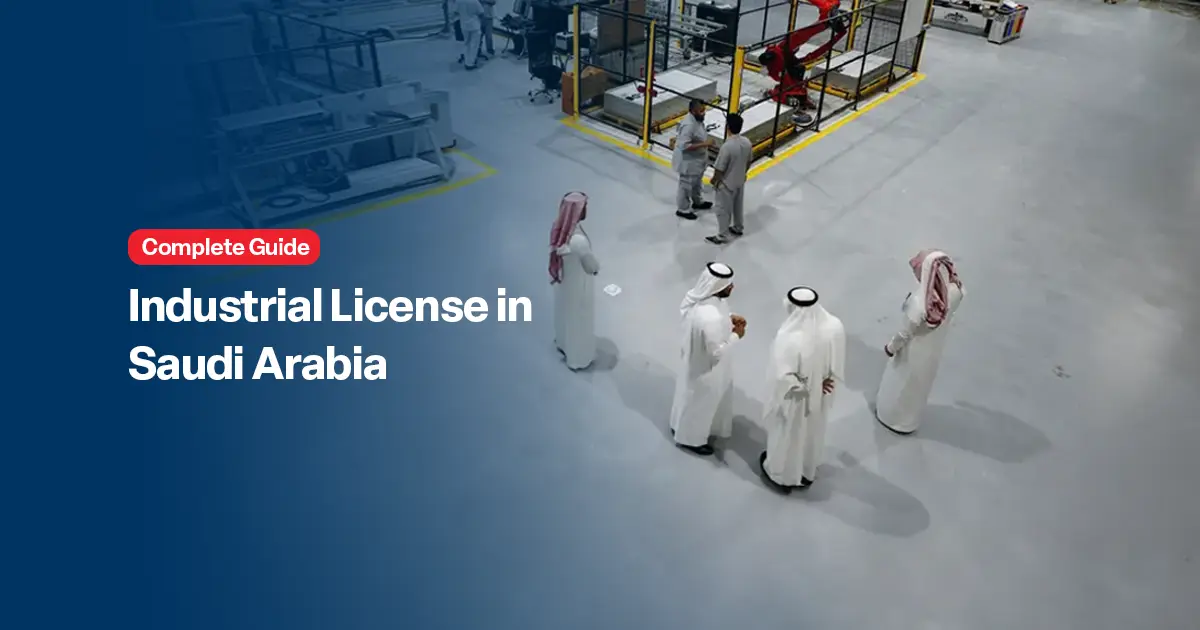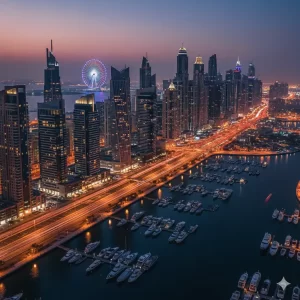Starting a factory without a license? That’s a fast way to lose time and money. But what if the process was simpler than you thought? Getting an industrial license in Saudi Arabia is easier when you follow the right path from day one. Want fewer delays, fewer mistakes, and faster approval? Here’s how real businesses do it—step by step. Ready to begin?
Table of Contents
Toggle- What is an industrial license in Saudi Arabia?
- Why Every Factory Needs an Industrial License in Saudi Arabia
- Who Issues the Industrial License in Saudi Arabia?
- What Documents Are Required to Apply for an Industrial License in Saudi Arabia?
- How to Get an Industrial License in Saudi Arabia?
- What are the costs for an industrial license in Saudi Arabia?
- Difference Between Activities Inside and Outside Industrial Zones Under an Industrial License in Saudi Arabia
- Environmental Impact
- Permitting Speed
- Infrastructure & Utilities
- Noise and Traffic Controls
- Allowed Activities
- What Activities Can Be Licensed Outside Industrial Cities with an Industrial License in Saudi Arabia?
- Do Logistics Activities Qualify for an Industrial License in Saudi Arabia Outside City Zones?
- Licenses You NEED for a Small Factory in Saudi Arabia
- How does Location Affect Approval for an Industrial License in Saudi Arabia?
- Technical Conditions for Industrial License in Saudi Arabia Approval
- Summary
- FAQ’s
What is an industrial license in Saudi Arabia?
An industrial license in Saudi Arabia is an official permit granted by the Ministry of Industry and Mineral Resources. It allows for light, heavy, and transformative industries. It is necessary for any company involved in manufacturing, assembling, or processing goods.
This license confirms that the business meets national regulations, including safety, environmental, and workforce requirements. It also enables access to government benefits such as tax reductions and customs support. Holding this license is essential to legally operate any industrial activity in the Kingdom.
Read more about the differences between commercial, industrial, and professional licenses.
Why Every Factory Needs an Industrial License in Saudi Arabia
Getting this license isn’t just paperwork – it’s your golden ticket to operate. Here’s what you get when you hold a valid industrial license in Saudi Arabia:
Stay legal
No license? Your factory risks being fined or shut down. Fines can exceed 500,000 SAR.
Pay less tax
In zones like KAEC or Jazan, licensed factories pay just 5% corporate tax, not 20%.
Import machines with no duty
Get up to 20% savings by skipping customs on industrial equipment.
Hire faster
With this license, you get 60-day visa processing for technical staff.
Hire global talent more easily with faster visa processing for technical staff.
Get more contracts
Many government tenders require licensed factories. No license = no bid.
Gain credibility
Banks, investors, suppliers—they all ask for this license. It’s proof you’re serious.
Speed things up in MODON
Sites inside MODON cities get permits 30% faster.
reduce risk
It proves your site meets health, safety, and environmental rules, key for long-term growth.
Access bank loans
Since banks require this license for manufacturing loans.
This license is your foundation. Without it, nothing moves. With it, your factory runs smoothly, gets support, and grows faster. Always prepare documents early, apply through the Ministry of Industry portal, and track each step.
Who Issues the Industrial License in Saudi Arabia?
The industrial license in Saudi Arabia is issued by the Ministry of Industry and Mineral Resources. This ministry oversees all manufacturing approvals to ensure businesses meet safety and environmental rules.
Moreover, applications are submitted through the ministry’s online platform, making the process transparent and trackable. Also, local authorities may provide additional permits, depending on the project location. Therefore, working closely with the ministry speeds up license approval and helps maintain compliance throughout operations.
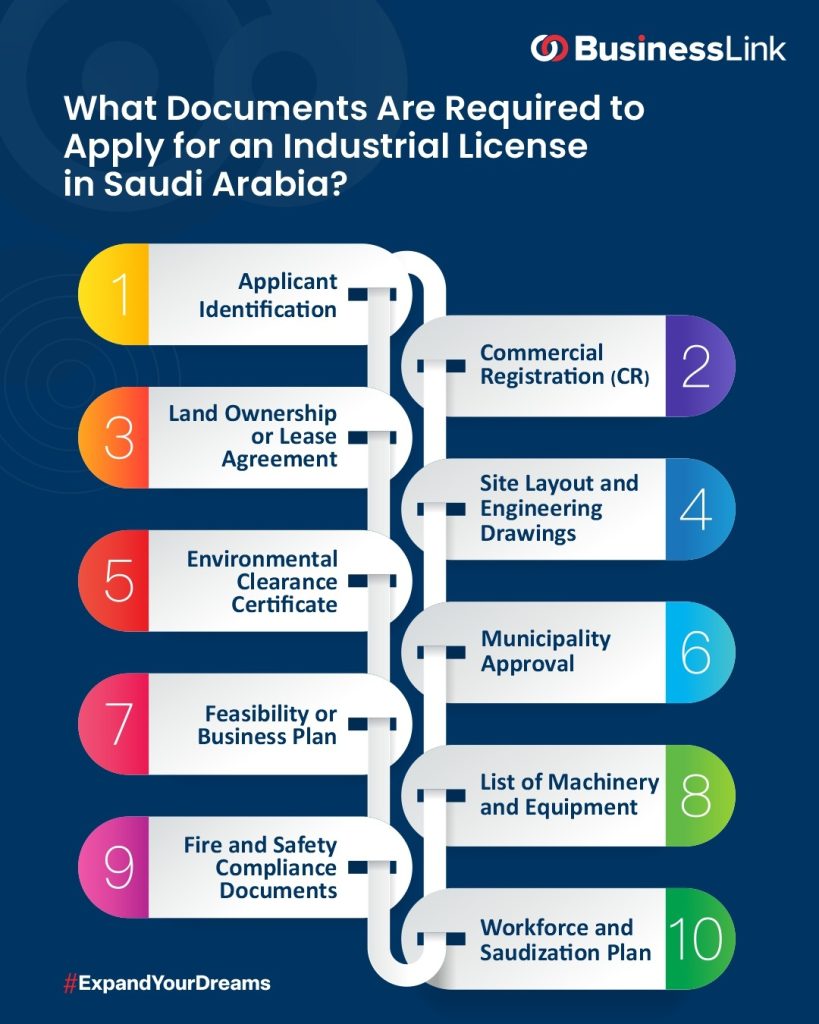
What Documents Are Required to Apply for an Industrial License in Saudi Arabia?
To apply for an industrial license in Saudi Arabia, you must submit a complete file with documents that meet the requirements of the Ministry of Industry and Mineral Resources, as well as other regulatory bodies such as the Municipality, Civil Defense, and Environmental Authorities. Below is a full list of required documents and why each is important.
Required Documents Checklist
1. Applicant Identification
- A valid Saudi ID for citizens or a passport for foreign investors is required.
- For companies: commercial registration (CR) copy of the parent company or legal entity
Importance: Establishes the business’s official identity and verifies ownership details.
2. Commercial Registration (CR)
- A valid CR from the Ministry of Commerce
- Activity must match the planned industrial operation (e.g., manufacturing, assembly, etc.)
Importance: Verifies the business’s legal status and ownership rights
3. Land Ownership or Lease Agreement
- A copy of the title deed or official lease contract for the factory site
- Must be in an approved industrial zone or pre-zoned area
Why it matters: Confirms your legal right to operate from the selected site
4. Site Layout and Engineering Drawings
- Detailed factory layout plans showing production areas, storage, utilities, and emergency exits
- Must follow Saudi Building Codes and be certified by a licensed engineering firm
Why it matters: Required for technical committee inspection and Civil Defense approval.
5. Environmental Clearance Certificate (if applicable)
- Issued through the National Center for Environmental Compliance (NCEC)
- Needed for projects with emissions, chemicals, or high-energy consumption
Why it’s important: Confirms adherence to environmental regulations and safety standards
6. Municipality Approval
- Approval from the local Municipality (Baladiyah) for land use and zoning
- Includes waste disposal and drainage system validation
Why it matters: Ensures that the site fits within local development and safety plans
7. Feasibility or Business Plan
- Clear description of the industrial activity
- Production capacity, raw materials, labor needs, and end products
- May include market studies and financial forecasts
Why it’s important: Enables the Ministry to evaluate the project’s economic potential and its fit with Vision 2030 goals.
8. List of Machinery and Equipment
- Detailed list with types, quantities, power load, and country of origin
- Machines must meet Saudi SASO standards or have conformity certificates (COC)
Why it matters: Required for customs clearance and technical inspection
9. Fire and Safety Compliance Documents
- Firefighting system layout
- Emergency exits and escape plans
- Certified by Civil Defense-approved safety consultants
Why it matters: Essential for health and safety approvals
10. Workforce and Saudization Plan
- Planned workforce details, including roles, headcount, and nationalities.
- Saudization plan to meet Nitaqat compliance
Why it matters: Required by the Ministry of Human Resources to support local employment.
Optional Documents (Based on Activity Type)
| Document | Needed For |
| Import/Export License | For factories involved in international trade |
| Industrial Waste Plan | For chemical or heavy industries |
| Customs Exemption Request | For machinery and raw materials imports |
| ISO or Quality Certifications | For food, medical, or precision equipment sectors |
Not providing a needed document may cause approval delays or result in application denial. Always review the latest checklist on the Ministry of Industry and Mineral Resources website (www.industry.gov.sa). For specialized sectors like food, pharmaceuticals, or petrochemicals, extra permits may be required from the SFDA or MEWA.
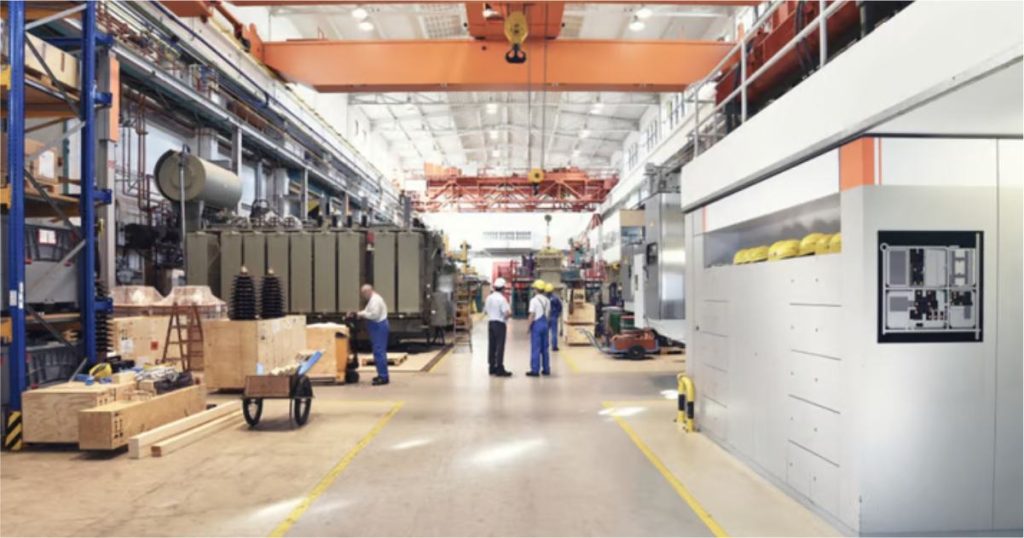
How to Get an Industrial License in Saudi Arabia?
Starting a factory in Saudi Arabia requires a legal permit. The process is online, but still requires full planning and document accuracy.
Step-by-Step Process
1. Register Your Company
Go to the Ministry of Commerce and apply for a Commercial Registration (CR). This confirms your business status.
Time: 1–2 weeks
2. Choose Your Location
Pick between:
- An industrial city like MODON (faster approvals)
- Private land outside (slower, more inspections)
Make sure the land fits zoning, safety, and environmental rules.
3. Prepare Your Documents
You’ll need:
- Commercial Registration (CR)
- Factory layout
- Feasibility study
- Lease contract
- Safety and environmental approvals
- Saudization plan
4. Apply Online
Log into the Ministry of Industry portal (Senaei). Fill in your industrial activity details. Upload all papers.
Time: 2–4 weeks (with full documents)
5. Pay Required Fees
Pay through the system or at an approved bank. The size of the factory and the type of license determine the fees.
Tip: Payment delays pause the whole process.
6. Wait for Review and Inspection
The Technical Committee will:
- Check your documents
- Visit your site
- Review safety and environmental compliance for any issues fast if flagged. Time: 2–6 weeks
7. Get Extra Permits If Needed
You may need:
- Civil defense
- Municipal clearance
- Environmental approvals (takes the longest—start early)
8. Receive Your License
Once approved, download your industrial license digitally. Valid for one year and can be renewed.
9. Keep It Updated
Renew before expiry. Update the license if anything changes—location, activity, or ownership.
Licensing Summary Table
| Step | What to Do | Documents or Info Needed | Time Estimate |
| Register Company | Apply for CR at the Ministry of Commerce | Business details, ID, ownership papers | 1–2 weeks |
| Pick Location | Inside MODON or a private site | Lease, location map, safety fit | Varies |
| Document Preparation | Collect required documents | CR, layout, studies, lease, Saudization plan | 1–3 weeks |
| Online Application | Fill in details, upload docs | Use the Senaei platform | 3–4 weeks |
| Pay Fees | Submit payment | Online or bank receipt | 1–2 days |
| Site Inspection | Technical review + on-site check | All uploaded papers must be valid | 2–6 weeks |
| Get Extra Permits | Civil defense, municipal, etc. | Depends on the project and site | Up to 3 months |
| Receive License | Download from the portal | Final approvals complete | After approvals |
| Stay Compliant | Submit renewals, reports, and changes | Ongoing paperwork | Every 12 months |
Factories located in Special Economic Zones like KAEC and Jazan receive benefits such as:
- 5% corporate tax (instead of 20%)
- No customs duties on machinery
- Faster visas for foreign workers
What are the costs for an industrial license in Saudi Arabia?
Getting your factory legal in Saudi Arabia comes with clear costs you need to plan for.
- First, budget for license fees – SAR 2,000 per year, up to 5 years.
- Next, expect initial setup charges between SAR 5,000 and 15,000.
- Then, add municipal fees around SAR 1,000 to 1,500.
- Don’t forget environmental checks – they take months but help you avoid fines.
Key Costs & Smart Savings
| Expense Type | Typical Cost (SAR) | How to Reduce It |
| License Fees | 2,000/year (max 5 years) | Pay multiple years upfront for discounts |
| Ministry Subscription | 10,000 (1st year), 60,000 later | Use MIMR-approved advisors to save 30% |
| Location-Specific Savings | ||
| MODON Industrial City | Higher rent | 30% faster permits, tax-free machinery |
| SEZ (KAEC/Jazan) | Setup premium | 5% corporate tax for 20 years |
| Hidden Must-Pays | ||
| Environmental Checks | 3,000–8,000+ | Start 6 months early |
| Saudization Plans | Varies by staff size | Hire through the Technical Training Fund |
Difference Between Activities Inside and Outside Industrial Zones Under an Industrial License in Saudi Arabia
Choosing the right location affects your industrial license in Saudi Arabia application and business success. Activities inside and outside industrial zones follow different rules, speeds, and restrictions
Key Differences Between Inside and Outside Industrial Zones
Approved Areas
- Inside zones, companies work in dedicated industrial parks planned for factories.
- Outside, activities are limited, often near city outskirts or private lands with more rules.
Environmental Impact
- Heavy industries are allowed inside zones.
- Outside, only low-impact activities get permits to protect urban areas.
Permitting Speed
- Inside zones get faster approvals because land and utilities are ready.
- Outside zones need extra municipal, environmental, and safety checks, which slow the process.
Infrastructure & Utilities
- Industrial zones offer developed roads, power, and shared services.
- Outside zones often require self-arranged utilities, raising costs.
Noise and Traffic Controls
- Outside zones face stricter limits to protect neighbors.
- While inside zones have looser rules.
Allowed Activities
- Heavy machinery and chemical plants usually stay inside zones.
- Light production, handmade goods, and basic assembly are allowed outside industrial zones with a valid industrial license in Saudi Arabia.
Compliance and Monitoring
- Outside locations need frequent inspections.
- Inside zones have streamlined but thorough monitoring.
Government Incentives:
- Inside industrial zones, businesses benefit from tax breaks and subsidies linked to Vision 2030.
- Outside activities gain fewer incentives but enjoy location flexibility.
Inside vs. Outside Industrial Zones
| Factor | Inside Industrial Zones | Outside Industrial Zones |
| Location | Pre-approved industrial parks | Areas near cities, private plots, or rural locations |
| Approval Speed | Quick and smooth process | Slower with extra permit steps |
| Environmental Rules | More flexible for heavy activities | Strict rules for low-impact operations |
| Infrastructure | Roads, power, and services are ready | May need new utilities and setup |
| Noise & Traffic | Easier rules on noise and access | Tight limits to protect nearby homes |
| Allowed Activities | Both heavy and light industries permitted | Mostly smaller, low-impact businesses |
| Compliance | Standard checks and inspections | More frequent and detailed reviews |
| Incentives | Offers like tax cuts and utility support | Few or no government benefits |
Why This Matters
Choosing between inside and outside industrial zones influences your approval timeline, costs, and compliance obligations. Inside zones provide convenience and support for big industries.
Meanwhile, outside zones offer flexibility for smaller or lighter operations but require more careful planning. Understanding these differences helps you select the best site for your industrial license Saudi Arabia application, save time, reduce costs, and comply with regulations under Vision 2030.
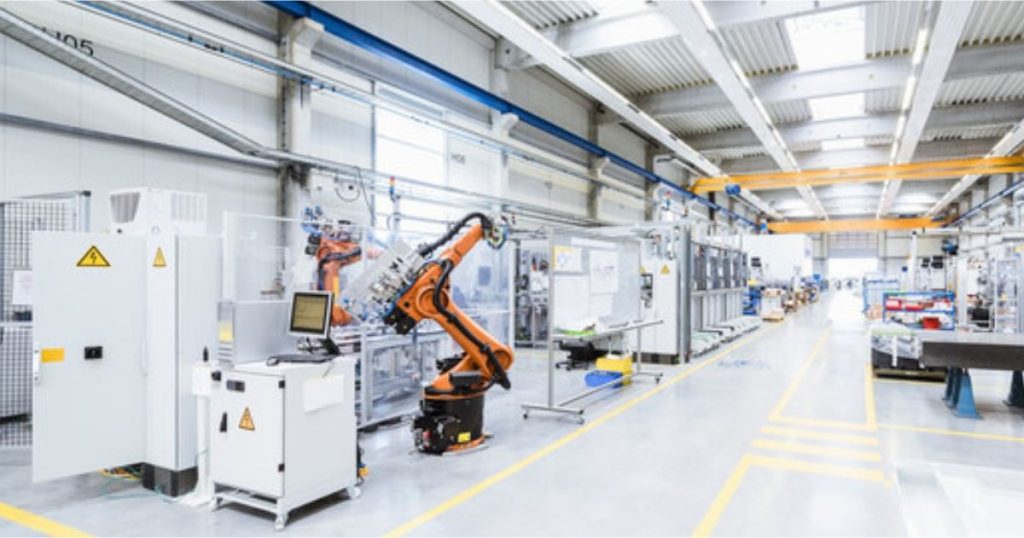
What Activities Can Be Licensed Outside Industrial Cities with an Industrial License in Saudi Arabia?
Operating outside Saudi Arabia’s main industrial zones is now easier for many businesses. With the right industrial license in Saudi Arabia, you can set up in urban or mixed-use areas, supporting growth in smaller communities and reducing costs.
Approved Activities Outside Industrial Cities
If your goal is flexibility and lower startup costs, consider these options:
- Light manufacturing of clothes, food, or everyday consumer goods
- Small-scale assembly of electronics, tools, or home appliances
- Food processing: bakeries, packaging, coffee roasting, juice bars
- Printing, publishing, or packaging in small workshops
- Craft, carpentry, or artisan production (woodwork, jewelry, pottery)
- Repair and maintenance shops for machinery, vehicles, or electronics
- Warehousing, dry and refrigerated storage, logistics depots
- Delivery centers, truck or container yards
- Recycling or waste sorting operations with low environmental impact
- Production of plastic, paper, or basic construction materials (concrete blocks, tiles)
- Metal fabrication with limited noise and emissions
- Tailoring, embroidery, and textile workshops in commercial areas
Businesses in these categories benefit from simplified permits and quicker approvals. Still, they must follow local environmental, safety, and municipal rules.
Where and What You Can Operate
| Activity Type | Allowed Outside Cities? | Permit Required? | Notes |
| Light Manufacturing | Yes | Yes | Must meet safety and municipal rules |
| Food Packaging & Processing | Yes | Yes | Requires hygiene/environmental clearance |
| Textiles/Tailoring | Yes | Yes | Low impact, fast local permits |
| Printing & Small Publishing | Yes | Yes | Urban commercial streets allowed |
| Assembly Workshops | Yes | Yes | Electronics, watches, and limited emissions |
| Warehousing/Logistics | Yes | Yes | Permitted in planning/depot areas |
| Repair/Maintenance | Yes | Yes | Must follow sector-specific guidelines |
| Recycling/Waste Sorting | Yes | Yes | Needs environmental approval |
| Construction Materials | Yes (if low impact) | Yes | Buffer zones may apply |
| Truck Yards/Delivery Centers | Yes (fringes/cities) | Yes | Municipal zoning compliance |
| Crafts/Artisan Production | Yes | Yes | Simple permit, low impact preferred |
| Chemical/Heavy Industry | No | — | Only in the main industrial zones |
Why Businesses Choose Locations Outside Industrial Cities
- Lower land and utility costs
- Closer access to local customers and suppliers
- Faster setups and reduced red tape for small projects
- Greater support for creative, artisan, or family-run ventures
Do Logistics Activities Qualify for an Industrial License in Saudi Arabia Outside City Zones?
Yes, they do—under certain conditions. Saudi Arabia allows some logistics work outside industrial zones. This supports wider growth while meeting clear safety and location rules.
Allowed Logistics Activities
These logistics activities can operate with an industrial license in Saudi Arabia outside industrial cities:
- Warehousing (dry and cold storage)
- Truck yards and container terminals
- Distribution and delivery centers
- Packaging and sorting facilities
- Vehicle repair linked to transport fleets
- Fulfillment and inventory hubs
- Refrigerated storage (if waste is managed)
- Customs inspection stations (with approval)
Municipal and ministry approvals are required before operations start.
Logistics Activities Outside Industrial Zones
| Activity Type | Allowed Outside Cities? | Permit Needed | Notes |
| Dry Warehousing | Yes | Yes | Must meet hygiene and safety regulations |
| Cold Storage | Yes | Yes | Requires environmental clearance |
| Truck/Container Yards | Yes | Yes | Zoning approval is mandatory |
| Distribution Centers | Yes | Yes | Must link to supply chain infrastructure |
| Delivery Points | Yes | Yes | Must be away from residential areas |
| Packaging Facilities | Yes | Yes | Low noise, low pollution only |
| Maintenance Garages | Yes | Yes | Only if related to logistics operations |
| Customs & Inspection Sites | Yes (with approval) | Yes | Needs customs authority clearance |
| Freight Terminals | No | — | Allowed only in industrial cities |
Conditions You Must Meet
- Comply with all environmental and municipal rules
- Follow zoning guidelines for each specific site
- Obtain your license from the Mineral Resources and Industry Ministry.
- Check for additional permits (like waste, noise, and traffic impact)
This setup helps reduce pressure on major zones. It also boosts regional access to logistics, shortens delivery times, and supports Vision 2030 goals. In short, if your business qualifies, operating outside city centers could lower costs and speed up service.
Licenses You NEED for a Small Factory in Saudi Arabia
Obtaining your industrial license in Saudi Arabia is the first step. Real talk: You’ll need 6+ other permits to legally operate
First, register your company. Then, secure zoning and safety approvals. Finally, get the permits to hire staff and pay taxes. Remember, skipping any risks, fines, or shutdowns
Essential Licenses & Permits
- Commercial Registration (CR)
Issued by the Ministry of Commerce
Do this first—it’s your business ID - Municipal Permit
Local city approval for your factory site
confirms that the land use and zoning are legal. - Environmental Clearance
Ensures your waste, noise, and emissions are approved
Small factories need basic checks - Civil Defense Certificate
Fire safety and emergency readiness
Needed before you hire or operate - Labor File (GOSI + Ministry of Labor)
Required to employ Saudis or expats
Connects to the Saudization program - Tax and Zakat Registration (GAZT)
Needed for VAT and zakat payments
Mandatory if income exceeds SAR 375,000
Foreign owner?
You’ll also require a MISA investment license. It takes 3–4 weeks on average.
Quick License Checklist
| License | Authority | Key Requirement | Processing Time |
| Industrial License | Ministry of Industry | Factory location plan | 2–4 weeks |
| Commercial Registration | Ministry of Commerce | Minimum SAR 25,000 capital | 1–2 weeks |
| Municipal Permit | Local Municipality | Zoning and site approval | 5–7 days |
| Environmental Clearance | Environmental Authority | Waste and emissions plan | 2 weeks |
| Civil Defense Certificate | Civil Defense Department | Fire and safety inspection | 1 week |
| GAZT Tax Number | Zakat & Tax Authority (ZATCA) | Business CR + IBAN | 3 days |
Why These Licenses Matter
- You must sell 30% of production locally to keep incentives
- Imported machinery gets 0% customs duty if licensed properly
- Choosing the wrong location delays permits for months
- Local authorities can reject or suspend your file if incomplete
Want help with your Saudi factory setup? Get Business Link expert support to avoid mistakes and cut delays. Let’s build your business the right way.
How does Location Affect Approval for an Industrial License in Saudi Arabia?
Where you set up your factory in Saudi Arabia directly affects how fast you get your industrial license. It affects how many permits you need, how much you’ll spend, and how complicated the process gets. Picking the wrong location slows everything down. Picking the right one saves time, effort, and money.
Key Facts You Need to Know
- Industrial zones are pre-approved, so permits come faster and with fewer checks.
- Urban areas need more permits due to noise, traffic, and pollution restrictions.
- Remote zones have low land costs, but slow approvals due to poor infrastructure.
- Near residential zones, rules get stricter and reviews take longer.
- Some light manufacturing can happen inside cities, but only with limits.
- Border and coastal zones require approval for customs and logistics operations.
- Distance from highways matters. Being near major roads allows quicker inspections and speeds up the approval process.
- Local zoning laws differ. Always check with municipal offices before leasing.
- Some zones offer tax perks but come with extra conditions and tight rules.
- Inspections are carried out at all locations to ensure full compliance.
How Location Affects Approval Speed
| Location | Approval Time | Needs Extra Permits? | Best For |
| MODON Industrial City | Fast (2–4 weeks) | No | General manufacturing |
| City Outskirts | Medium (6–8 weeks) | Yes (environmental, zoning) | Medium factories, low emissions |
| Remote/Rural Areas | Slow (8–12 weeks) | Yes (utilities, roads) | Low-cost operations, storage |
| Urban Centers | Very Slow | Yes (safety, noise) | Only light workshops |
| Border and Coastal Zones | Medium | Yes (customs, logistics) | Storage facilities and export-oriented operations |
Quick Tips Before You Start
- Always visit the location in person.
- Contact the Ministry of Industry before applying.
- Ask for zoning and utility availability letters.
- Do not choose sites near homes or schools for high-noise activity.
- Choose pre-approved zones to skip long approvals.
The place you choose decides how easy or hard your factory start will be. One mistake in zoning can delay your entire project for months. Get it right the first time. Check local rules, ask questions, and make sure the land fits your activity. This keeps your industrial license in Saudi Arabia process clean, legal, and fast.
Technical Conditions for Industrial License in Saudi Arabia Approval
To get your industrial license in Saudi Arabia approved, your project must meet strict technical conditions set by the Ministry of Industry and Mineral Resources. These ensure that your facility is safe, efficient, and suitable for production activities.
1. Factory Layout and Design
- Minimum Area Requirement: Your site must meet the minimum space required for the activity. This includes built-up area, buffer zones, and loading spaces.
- Workflow Efficiency: The internal layout must show a clear separation of raw material intake, production lines, and finished goods dispatch. This helps prevent cross-contamination and maintains clear operational procedures.
- Emergency Access: Safe pathways and emergency exits must be included in the site plan. All doors, walkways, and emergency exits must comply with the Saudi Building Code.
2. Technical Installations
- Fire Safety Systems: You must install certified fire extinguishers, alarm systems, and sprinklers. Fire-resistant doors and fire escape maps are also required.
- Ventilation & Airflow: Proper industrial ventilation must be designed to handle fumes, dust, and heat output.HVAC systems must comply with SASO and Civil Defense guidelines.
- Lighting & Electrical Wiring: Electrical layouts must be approved by licensed engineers. All equipment must have proper insulation, grounding, and safety cut-offs.
3. Environmental & Health Controls
- Noise Management: Machines must be enclosed or insulated to stay within permitted decibel levels. Noise studies may be required depending on your location.
- Waste Disposal Systems: You need clear plans for managing industrial waste—solid, liquid, or chemical. Documentation is required for on-site storage, recycling activities, and contractor agreements.
- Water Drainage & Treatment: Drainage systems must separate greywater and hazardous waste. If applicable, on-site treatment units must be approved by local authorities.
4. Machinery and Equipment
- All equipment must be compliant with Saudi standards (SASO)
- Machines must have safe operating manuals, guards, and access control
- Imported machinery should have certificates of conformity (COC)
5. Safety Protocols and Worker Welfare
- First Aid Station with accessible medical kits
- Separate locker rooms and rest areas for male and female employees.
- Protective equipment storage and training areas
- Safety data sheets must be available for every chemical in use.
6. Approval and Inspection Process
Before issuing your industrial license, the Technical Committee will:
- Review your engineering drawings and technical study
- Visit the proposed location to verify technical compliance
- Issue comments, if needed, for modifications
- Approve your file if all systems meet regulatory standards
| Requirement | Mandatory? | Issuing Authority |
| Approved Site Engineering Layout | Yes | Ministry of Industry |
| Fire Prevention and Safety Plan | Yes | Civil Defense |
| Solid and Liquid Waste Plan | Yes | Municipality and MEWA |
| Certified Equipment (SASO Standards) | Yes | SASO |
| Environmental Approval (if needed) | If applicable | Ministry of Environment |
| On-Site Worker Amenities | Yes | Ministry of Human Resources |
Missing even one of these requirements can delay or reject your application. Saudi Arabia applies these technical inspections to:
- Ensure safety for staff and residents
- Protect the environment
- Match industrial development goals under Vision 2030
Summary
Ready to take the next step? If you’re planning to start or grow your factory, don’t waste time guessing the rules. This guide, Industrial License in Saudi Arabia, gives you all the steps you need. Stay ahead by choosing the right setup and keeping your paperwork on track
Business Link UAE can help you apply fast, follow all the updates, and avoid delays. Reach out now. Start your journey with a partner who knows the system inside out.
FAQ’s
Can I open a light furniture workshop with an industrial license in Saudi Arabia?
Yes, it qualifies as a light manufacturing activity. You can open it in approved areas inside or near cities. Still, you must meet:
- Environmental standards
- Technical building layout
- Municipal and fire permits
Keep your activity within the approved scope to avoid delays.
How does Saudi Real Estate law affect industrial licenses in Saudi Arabia?
The Saudi Real Estate law governs land and property use inside Saudi Arabia, including sites for industrial facilities. When applying for an industrial license in Saudi Arabia, you must comply with real estate rules about land ownership, site allocation, and zoning to avoid legal issues.
Can foreigners obtain an industrial license in Saudi Arabia?
Yes, foreign investors can apply for an industrial license in Saudi Arabia, with 100% ownership allowed in many cases. The Saudi government encourages foreign investment under the Vision 2030 plan, providing incentives and support to industrial projects led by non-Saudis.
How long does it take to obtain an industrial license in Saudi Arabia?
The time for an industrial license in Saudi Arabia can vary. Usually, it takes between 4 to 6 months, involving reviews by different government departments. Some phases, like establishing and construction permits, have separate timelines within the overall process.

